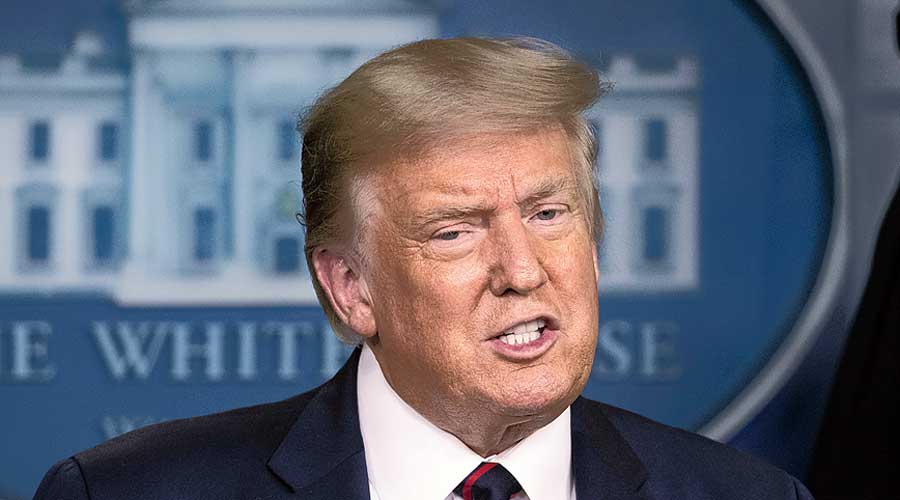President Donald Trump’s positive coronavirus test has raised the possibility, however remote, that he could become incapacitated or potentially die in office if his symptoms worsen.
What happens if Trump dies or cannot serve?
The Constitution and the law are clearest in instances when a President dies or must resign from office. The 25th Amendment states: “In case of the removal of the President from office or of his death or resignation, the Vice-President shall become President.”
Vice-President Mike Pence has tested negative for the virus.
A Vice-President has assumed the nation’s highest office because of the President’s death eight times.
The Constitution leaves it to Congress to decide what should happen if the Vice-President also dies or cannot serve, and several laws have been enacted to lay out the contingencies.
Speaker Nancy Pelosi, 80, said on Friday that she had tested negative for the virus and was confident that the right plans were in place, should they become necessary. Senator Charles E. Grassley, Republican of Iowa, is the current President pro tempore in the Senate. He is 87.
What if the President is too ill to perform his duties?
Under the 25th Amendment, ratified in the 1960s to clarify presidential disability and succession planning, Presidents can voluntarily designate powers to their Vice-Presidents if they become seriously ill or are unable to perform their duties.
On Friday afternoon, as Trump was expected to depart for Walter Reed, Judd Deere, a White House spokesman, said the President would remain fully in power.
“No transfer,” he said. “The President is in charge.”
What happens if Trump cannot run anymore?
It gets messy, quickly.
First, the Republican National Committee would have to produce a new nominee, a process that would involve Chairperson Ronna McDaniel and the 168 national members. But since many states have already started printing, mailing and accepting ballots, and some have begun in-person voting, the name of a new nominee could be unlikely to be printed on ballots in time for Election Day.
Then it would fall to individual states to decide how to proceed, and most have not set rules for this situation.
The question would become more complex if Trump won but was unable to serve. Some but not all states bind their electors to vote for whoever wins the state, but even most states with binding elector laws make no mention of what could happen should a candidate die or be unable to serve. The question could be resolved by Congress, which certifies the Electoral College vote, or it could end up in the courts.
New York Times News Service











